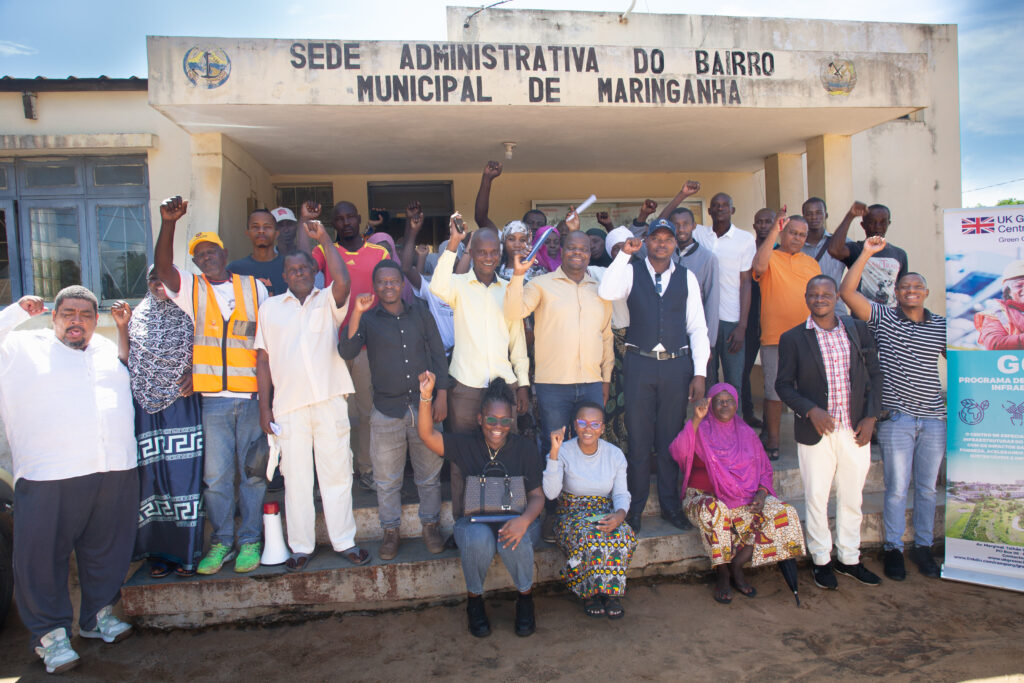- Residents of Metula and Maringanha played an active role in shaping local development plans through a structured, inclusive public hearing process.
- Several community priorities were clearly articulated, including improved land use, road access, water supply, drainage, public lighting and essential social infrastructure.
- 176 participants including community members, government agencies, service providers, and international partners demonstrated broad support and collaboration.

Participants during the second public hearing as part of the participatory process for developing the detailed plans for the neighbourhoods of Metula and Maringanha, Pemba.
On 13 and 14 May, the neighbourhoods of Metula and Maringanha in Pemba, Mozambique, hosted their second public hearings, organised by GCIEP in partnership with the Pemba City Municipal Council. These sessions marked a key milestone in the participatory urban planning process for the development of detailed neighbourhood plans.
The hearings served as both a platform to share technical proposals and an opportunity to elevate the voices of residents. By placing community input at the heart of decision-making, the process ensures that development is not only inclusive but also rooted in local needs and aspirations.
This followed the initial hearing held in February, where socioeconomic data was presented, and preliminary feedback was gathered. The second round built on that foundation by sharing planning scenarios informed by residents’ input and 20-year population projections.
Two key planning scenarios were presented. One envisages that internally displaced persons—many of whom have settled in the area due to regional conflict—will remain; the other considers a future where stability allows approximately 30% of internally displaced persons to return to their places of origin. Both approaches aim to ensure long-term, inclusive and sustainable urban development.
Several community priorities were clearly articulated, including improved land use, road access, water supply, drainage, public lighting and essential social infrastructure, including schools, health posts and a multifunctional community centre. These needs were echoed by local development actors and service providers.
Providing feedback to the consultation, one resident aptly remarked:
“We’re seeing these beautiful maps. That means our neighbourhood is going to develop. But we want women to be included, not just now during the planning, but also throughout implementation. We also want to contribute to the development of our community.”
A total of 176 individuals participated, including women, young people, older residents and people with disabilities. Government agencies, municipal departments, defence forces, public utilities such as EDM and FIPAG, and international partners, AVSI and E-35, were also in attendance, reflecting a strong commitment to collaborative planning.
The UK’s Green Cities, Infrastructure and Energy Programme is tackling climate change and extreme poverty by accelerating the delivery of sustainable green cities and climate-resilient infrastructure.
Published
28/05/25
